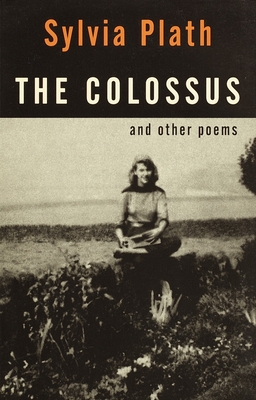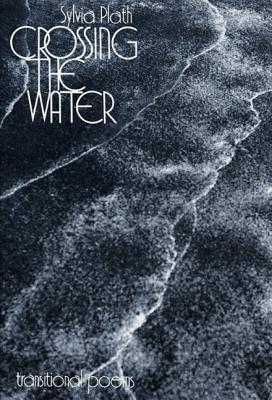


One of The Atlantic's Great American Novels
A coming-of-age masterpiece. . . . Sylvia Plath has become one of the influential writers of her time. --Boston Globe
Sylvia Plath's masterwork--an acclaimed and enduring novel about a young woman falling into the grip of mental illness and societal pressures
Esther Greenwood is a bright, beautiful, enormously talented young woman, but she's slowly going under--maybe for the last time. Sylvia Plath brilliantly draws the reader into Esther's breakdown with such intensity that her neurosis becomes palpably real, even rational--as accessible an experience as going to the movies. A deep penetration into the darkest and most harrowing corners of the human psyche, The Bell Jar is an extraordinary accomplishment and a haunting American classic.
This edition features extra insights into the book and author.

Pulitzer Prize winner Sylvia Plath's complete poetic works, edited and introduced by Ted Hughes.
By the time of her death on 11, February 1963, Sylvia Plath had written a large bulk of poetry. To my knowledge, she never scrapped any of her poetic efforts. With one or two exceptions, she brought every piece she worked on to some final form acceptable to her, rejecting at most the odd verse, or a false head or a false tail. Her attitude to her verse was artisan-like: if she couldn't get a table out of the material, she was quite happy to get a chair, or even a toy. The end product for her was not so much a successful poem, as something that had temporarily exhausted her ingenuity. So this book contains not merely what verse she saved, but--after 1956--all she wrote. -- Ted Hughes, from the Introduction

One of The Atlantic's Great American Novels
A beautifully designed Harper Perennial Deluxe Edition of this haunting American classic: a realistic and emotional novel about a woman battling mental illness and societal pressures written by the iconic American writer Sylvia Plath.
It is this perfectly wrought prose and the freshness of Plath's voice in The Bell Jar that make this book enduring in its appeal. -- USA Today
The Bell Jar chronicles the crack-up of Esther Greenwood: brilliant, beautiful, enormously talented, and successful, but slowly going under--maybe for the last time. Sylvia Plath masterfully draws the reader into Esther's breakdown with such intensity that Esther's neurosis becomes completely real and even rational, as probable and accessible an experience as going to the movies. Such deep penetration into the dark and harrowing corners of the psyche is an extraordinary accomplishment and has made The Bell Jar an enduring classic.

Sylvia Plath's last poems have impressed themselves on many readers with the force of myth. They are among the handful of writings by which future generations will seek to know us and give us a name. -- The Critical Quarterly
Sylvia Plath's celebrated collection.
When Sylvia Plath died, she not only left behind a prolific oeuvre but also her unpublished literary masterpiece, Ariel. Ted Hughes helped bring the collection to life in 1966, and its publication garnered worldwide acclaim. This collection showcases the beloved poet's brilliant, provoking, and always moving poems, including Ariel, The Applicant, Lady Lazarus, and Edge, and once again shows why readers have fallen in love with her work over generations.

Made up of poems that are so original in their style and so startlingly accomplished in their confessional voice that they helped change the direction of contemporary poetry, Ariel is a masterpiece. -- New York Observer
Sylvia Plath's famous collection, as she intended it.
When Sylvia Plath died, she not only left behind a prolific life but also her unpublished literary masterpiece, Ariel. When her husband, Ted Hughes, first brought this collection to the public, it garnered worldwide acclaim, but it wasn't the draft Sylvia had wanted her readers to see. This facsimile edition restores, for the first time, Plath's original manuscript--including handwritten notes--and her own selection and arrangement of poems. This edition also includes in facsimile the complete working drafts of her poem Ariel, which provide a rare glimpse into the creative process of a beloved writer. This publication introduces a truer version of Plath's works, and will alter her legacy forever.

Pulitzer Prize winner Sylvia Plath's complete poetic works, edited and introduced by Ted Hughes.
By the time of her death on 11, February 1963, Sylvia Plath had written a large bulk of poetry. To my knowledge, she never scrapped any of her poetic efforts. With one or two exceptions, she brought every piece she worked on to some final form acceptable to her, rejecting at most the odd verse, or a false head or a false tail. Her attitude to her verse was artisan-like: if she couldn't get a table out of the material, she was quite happy to get a chair, or even a toy. The end product for her was not so much a successful poem, as something that had temporarily exhausted her ingenuity. So this book contains not merely what verse she saved, but--after 1956--all she wrote.--Ted Hughes, from the Introduction


A Special Hardcover Edition to Commemorate the 50th Anniversary of the Publication of Sylvia Plath's Remarkable Novel
It is this perfectly wrought prose and the freshness of Plath's voice in The Bell Jar that make this book enduring in its appeal. -- USA Today
The shocking, realistic, and intensely emotional novel about a woman battling mental illness and societal pressures written by iconic American writer Sylvia Plath.
Esther Greenwood is brilliant, beautiful, enormously talented, and successful, but slowly going under--maybe for the last time. In her acclaimed and enduring masterwork, Sylvia Plath brilliantly draws the reader into Esther's breakdown with such intensity that her neurosis becomes palpably real, even rational--as accessible an experience as going to the movies. A deep penetration into the darkest and most harrowing corners of the human psyche, The Bell Jar is an extraordinary accomplishment and a haunting American classic.


[Plath's] story is stirring, in sneaky, unexpected ways. . . . Look carefully and there's a new angle here -- on how, and why, we read Plath today.-- Parul Sehgal, New York Times
Never before published, this newly discovered story by literary legend Sylvia Plath stands on its own and is remarkable for its symbolic, allegorical approach to a young woman's rebellion against convention and forceful taking control of her own life.
Written while Sylvia Plath was a student at Smith College in 1952, Mary Ventura and The Ninth Kingdom tells the story of a young woman's fateful train journey.
Lips the color of blood, the sun an unprecedented orange, train wheels that sound like guilt, and guilt, and guilt these are just some of the things Mary Ventura begins to notice on her journey to the ninth kingdom.
But what is the ninth kingdom? she asks a kind-seeming lady in her carriage. It is the kingdom of the frozen will, comes the reply. There is no going back.
Sylvia Plath's strange, dark tale of female agency and independence, written not long after she herself left home, grapples with mortality in motion.

This books is a collection of poetry by SYLVIA PLATH. He was an American poet, novelist, and short-story writer. She is credited with advancing the genre of confessional poetry and is best known for two of her published collections, The Colossus and Other Poems (1960) and Ariel (1965), as well as The Bell Jar, a semi-autobiographical novel published shortly before her death in 1963. The Collected Poems were published in 1981, which included previously unpublished works. For this collection Plath was awarded a Pulitzer Prize in Poetry in 1982, making her the fourth to receive this honour posthumously.


Crossing the Water, a collection of poems written just prior to those in Ariel, . . . is of immense importance in recording [Plath's] extraordinary development. One senses on every page a voice coming into its own, the chaos of a lifetime at last getting ready to assume its final, triumphant shape. -- Kirkus Reviews
Sylvia Plath's extraordinary collection pushes the envelope between dark and light, between our deep passions and desires that are often in tension with our duty to family and society. Water becomes a metaphor for the surface veneer that many of us carry, but Plath explores how easily this surface can be shaken and disturbed.

What I fear most, I think, is the death of the imagination. . . . If I sit still and don't do anything, the world goes on beating like a slack drum, without meaning. We must be moving, working, making dreams to run toward; The poverty of life without dreams is too horrible to imagine. -- Sylvia Plath, Cambridge Notes (From Notebooks, February 1956)
Renowned for her poetry, Sylvia Plath was also a brilliant writer of prose. This collection of short stories, essays, and diary excerpts highlights her fierce concentration on craft, the vitality of her intelligence, and the yearnings of her imagination. Featuring an introduction by Plath's husband, the late British poet Ted Hughes, these writings also reflect themes and images she would fully realize in her poetry. Johnny Panic and the Bible of Dreams truly showcases the talent and genius of Sylvia Plath.


Sylvia Plath's correspondence, addressed chiefly to her mother, from her time at Smith College in the early 1950s up to her suicide in London in February 1963. In addition to her capacity for domestic and writerly happiness, these letters also hint at her potential for deep despair.



